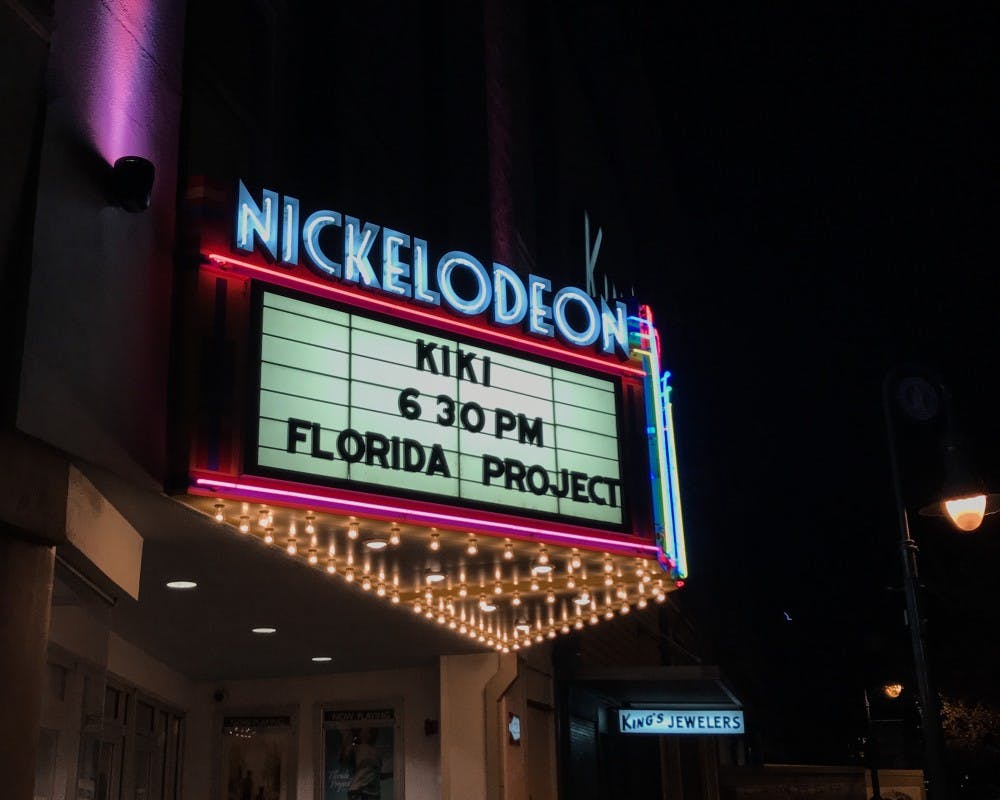South Carolina Black Pride, in partnership with the Nickelodeon Theatre, presented "KIKI" earlier this week, an emotional, provocative and curious documentary about an underground LGBTQ dance movement. The film was shown as a part of the Nick's "Dance Scene" series, a selection of films that showcase "the best in contemporary dance documentaries and encompasses a variety of dance genres," said Nickelodeon Theatre director Alison Kozberg.
According to Birgitta Johnson, USC assistant professor of ethnomusicology, Kiki is a contemporary dance trend that exemplifies "the current ballroom vogue scene among Black and Brown millennials." Within the Kiki scene, there are various teams, called "houses" in Kiki vernacular, that "provide safe haven, community, health resources, and a space to mobilize and advocate for LGBTQ rights in local and national politics," she said.
The underground dance scene of Kiki is on the rise as a leading voice for civil rights for one group of people who have historically faced higher rates of poverty and homelessness.
SCBP is a 13-year-old social advocacy group for black LGBTQ persons in South Carolina. However, the group aims to be a voice for persons of all races and backgrounds.
"We try to pride ourself on being a 365 pride, so we try to do events throughout the year that caters to different aspects of the community," said president and CEO of SCBP, Darius Jones.
In choosing to present "KIKI," the group wanted to shed light on the ballroom segment of the South Carolina community, one that is often considered to be unknown and unacknowledged.
"Contrary to some assumptions, ballroom culture and the Kiki scene aren't limited to cities like New York, Los Angeles or San Francisco. The major houses have chapters in cities all over the country, including the South," Johnson said.
"KIKI" reaches beyond just the superficialities of the music, dance moves and makeup of the Kiki scene, and manages to delve deeper into the stories of its performers.
According to Jones, SCBP chose to promote this particular documentary because "it not only follows individuals in the ballroom scene — or the Kiki scene — it actually goes into their lives."
Naturally, this intimacy made the documentary a medium through which members of the Kiki community could open up about their experiences with personal expression. The exuberant pageantry of Kiki competitions and dancers can easily distract from the fact that the entire movement stems from patterns of discrimination and the resulting need for family, friends and a refuge for acceptance.
For "a lot of the participants ... their houses are actually, really are, their families, and it's very important to not only just display that, but to just let them know 'we see you, we understand the issues that you're going through'," Jones said.
The film was well-received by a packed theater, with appreciative snapping and applause throughout. In alignment with SCBP's mission to "empower and promote the human rights of all families and communities," the documentary opened the eyes of its viewers to a subculture of talented, competitive, oppressed dancers.
When asked if he has seen any racism, homophobia or discrimination in Columbia, Jones replied, "It is not as prevalent in Columbia as other parts of the country ... I will say I have experienced it personally, but on a broader scale, no."
Jones does, however, see the need for a wider conversation about these issues, in Columbia and other communities.
"I think there is a conversation that needs to be had with our LQBTQ community when it comes to race, when it comes to homophobia," Jones said.
Pushing through relentless years of systematic abandonment and prejudice, Kiki performers combat these trends with big personalities and undying love for all.
Each year since starting with SCBP in 2009 as a youth coordinator and the youngest person to join SCBP Board at the time, Jones says that he has seen a progressive change in the community.
Groups like SCBP seek to increase the public welcoming of diversity and give minority groups the strength to combat ignorance with friendliness.
"You either handle it with your fists, or you handle it with a smile. One gets you jail time with a record, the other one gets you a good day and a paycheck," said performer Darrell Daney II.

